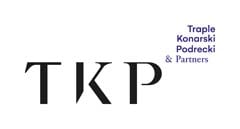News and developments
(Non-)obvious assessment of trademarks for medicinal products
Consumers are looking at medicinal product trademarks with greater precision. Because these products have an effect on health, the issue of similarity between trademarks for products on this kind is not always considered in the same way as trademarks for goods and services in other industries. In the case of medicinal products and pharmaceuticals, even slight differences in brand names might be important. This was the standpoint adopted recently by the Supreme Administrative Court[1], which stated that even a change of merely the last two letters of a mark can be significant. The court also found that in the case of medicine, a name that combines the name of the main chemical ingredient of the medicine in question or name of an illness for which the medicine is intended with certain prefixes or stereotypical endings is a fanciful name.
More than twenty years ago, the firm Poznańskie Zakłady Zielarskie "Herbapol" S.A. registered the trademark SYLIMAROL in classes 5, 29, 30 and 31, for products such as food and dietetic substances for medical use, dietetic food for medical use, pharmaceuticals and veterinary products, medicinal herbs, healing broth or for instance edible oils. An attempt was made by a competitor to have this trademark invalidated. The competitor seeking invalidation argued that the mark alluded to the international generic name used for the active substance "Silymarin” (in Polish sylimaryna), which is recognized by the WHO as an INN (International Non-proprietary Name), and thus the element "sylimar-", used in the trademark described the use and ingredients of the product, and indicated the generic name for the product it denoted. The ending of the word, "-ol”, does not change this. Importantly, if the name of an active substance is recognized as an INN, it is not possible to register a trademark reflecting that name, because it is intended to identify pharmaceutical substances or active pharmaceutical ingredients.
The proprietor of the disputed trademark contested this view, pointing to the practice in the pharmaceutical industry of using marks that make inferences or allusions. The proprietor also argued that the mark did not prevent other firms from using the name of the active substance “sylimaryna” (for example in names such as SYLIMARYNA MEDICEO, SYLIVERIN) on the market.
The Polish Patent Office found that trademark distinctiveness is not determined by a certain level of linguistic or artistic creativity or imagination on the part of the proprietor. It is sufficient for the trademark to enable the relevant public to determine the origin of the goods or services for which the trademark is intended and distinguish them from goods or services of other origin. The mark does not have to be particularly unusual or original; it only has to have a minimum level of distinctiveness.
The Voivodship Administrative Court concurred, stating that the trademark in question was not the name of a substance but a fanciful name intended to identify goods, and was clearly different to the name of the active substance.Moreover, the mark did not exist as a generic term in Polish or any other language. The fact that one of the ingredients of the product named Sylimarol is sylimaryna does not automatically mean that this brand is descriptive. The Voivodship Administrative Court found that the premise that the mark SYLIMAROL could be confused with the generic name of the substance is a flawed one, because in “the case of generic names of active substances used in pharmaceutical production, the way in which letters are arranged - the layout and sequence, is fundamental and cannot go unnoticed by consumers”.
The Supreme Administrative Court upheld the Polish Patent Office’s and the Voivodship Administrative Court’s findings, stating that in the case of medicine or cosmetics, a name that combines the name of the main chemical ingredient of the medicine in question or name of an illness for which the medicine is intended with certain prefixes or stereotypical endings is a fanciful name.
Authors: Anna Sokołowska-Ławniczak, PhD, Patent and Trademark Attorney, Partner and Kaja Seń, Trainee attorney-at-law, Associate
Footnotes
[1] Judgment of the Supreme Administrative Court of 6 July 2023, case file II, GSK 474/20.
